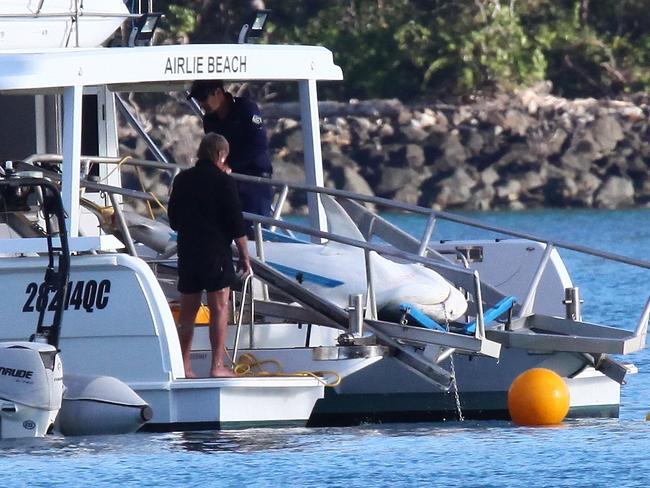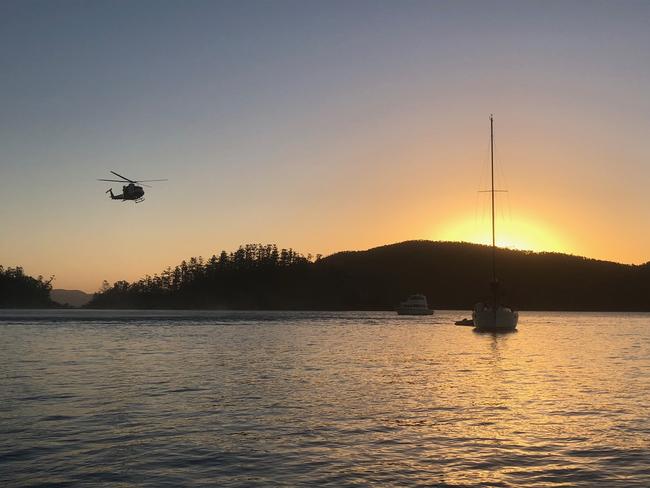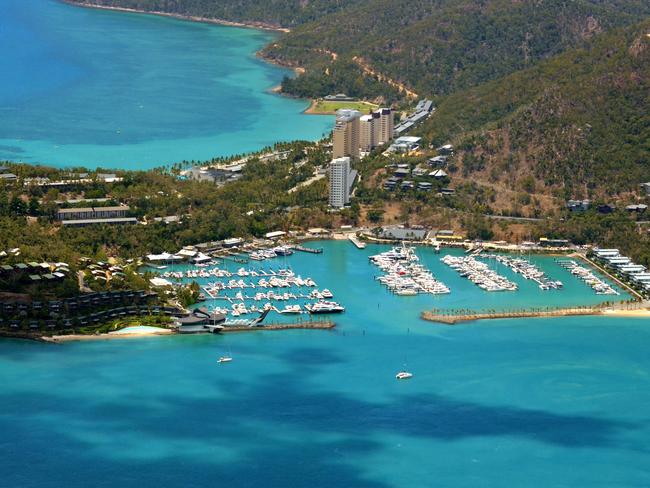Food scraps tossed overboard lure predators closer to tranquil harbour
CHARTER operators and shark experts believe fish carcasses and food scraps tossed overboard from yachts is to blame for an uncommon spike in shark attacks in the Whitsundays.
QLD News
Don't miss out on the headlines from QLD News. Followed categories will be added to My News.
SHARK experts and charter operators believe fish carcasses and food scraps tossed overboard from yachts are to blame for an extraordinary spike in shark attacks in the Whitsundays and drumlines are only a short-term solution.
Authorities were yesterday attempting to identify what type of shark killed a 33-year-old Victorian man at Cid Harbour, where bull and tiger varieties have been reported, as precautions were put in place to deter further attacks.
Drumlines were installed in response to the previous two attacks in September – which resulted in the capture of six tiger sharks – before being removed.

James Cook University shark researcher Professor Colin Simpfendorfer said despite drumlines being used up and down the Queensland coast, in this case it was a short-term solution to make the public feel safer.
“They provide some very short-term, very localised benefit but unless you do that on a very long-term basis, in a very sensible way, even then it’s not guaranteed to work,” he said.
“It’s a strategy that can be good for making the public feel safer but the reality is, that doesn’t really solve the problem.”
Sharks and Rays Australia principal scientist Barbara Wueringer said the “strange” attacks could be occurring from boaties dumping fish carcasses and other organic waste into the harbour.
“The question is, why did this shark attempt to bite a human? This is out of the ordinary behaviour. It means the shark has overcome the fear of interacting with an animal that it doesn’t know,” she said.
“I would assume that because it’s a popular anchorage spot for yachts that people are discarding organic waste into the water, like fish carcasses, so I think that could be the key to what’s going on there.”

Monday’s attack also occurred at dusk, which experts say is the most common time for sharks to be active.
Whitsunday Bareboat Operators Association president Trevor Rees has called for a forum with scientific experts and shark researchers on the best way to the control sharks.
He suggested a ban on yachties tossing food scraps in the water at overnight mooring sites.
“We don’t want sharks to get pre-conditioned and hang around under the yachts waiting for a free feed,’’ Mr Rees said.

“It is unnatural for the sharks to be there in such big numbers, they are usually out in the open ocean chasing tuna and other schools of fish.
“But when you’ve got up to 40 boats, with on average six crew on-board, that’s 240 meals, three times a day, throwing excess bait and food scraps in the water it creates an imbalance in the natural ecosystem.”
Originally published as Food scraps tossed overboard lure predators closer to tranquil harbour


